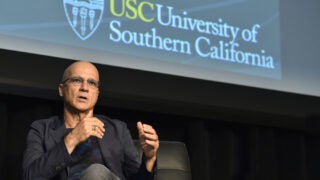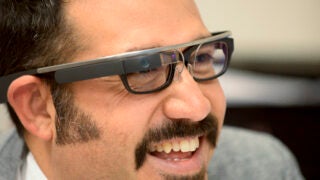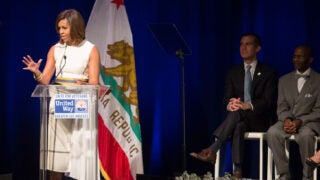From a three-person shop in 1972 to an institute of more than 400 today, ISI continues to lead the way in computing research.
Digital USC
News Listing
Two USC Viterbi doctoral students want to make the process of redesigning apps for accessibility convenient.
Games centering on a mysterious solar system and human empathy receive accolades at the 17th annual event.
USC Marshall study provides a new model of media consumption in our ‘age of interruption.’
The Institute for Creative Technologies teams with the Smithsonian for presidential portrait project.
Virtual reality. Humans wired for health. Digital sculptors crafting 3-D bodies with code, not clay. They're all part of our high-tech future, shared by USC researchers at the Global Conversation in New York.
$23 million in awards creates two Centers of Excellence and establishes USC as a hub for understanding the brain through data mining.
The future of digital communication will come from within these walls.
‘What does this story look like, feel like, sound like?" Digital interconnections will bring alive the great victories and tragedies — and everyday stories — taking place half a world away.
The research holds promise for people with mental health issues, social psychologist says.







